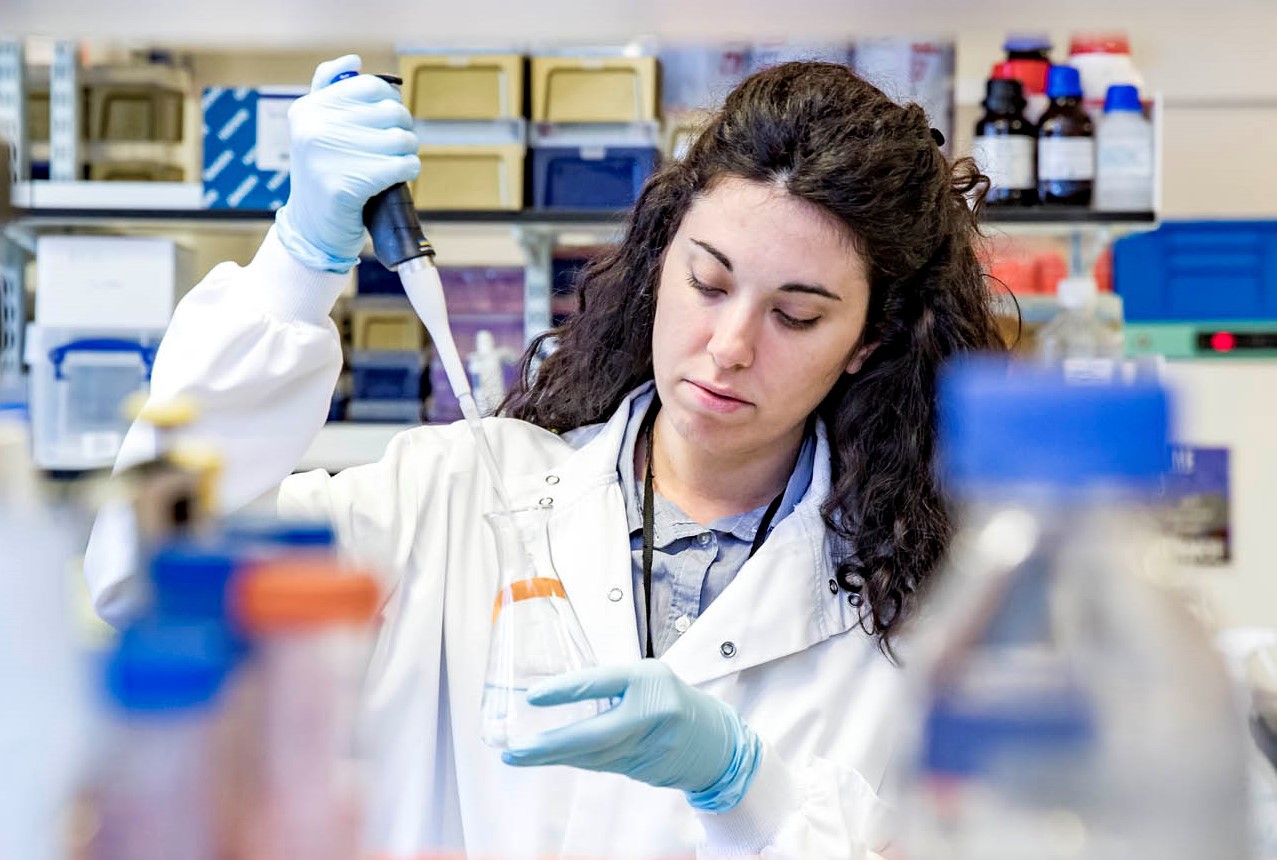
The research you fund
Donations made in loving memory help fund vital research projects that seek to develop treatments for macular disease or to make life easier for people living with the condition.
Every year The Macular Society runs a seedcorn funding programme. These grants allow scientists to conduct small, early stage research projects in order to show results that will support larger grant applications. We have recently approved 3 new projects.
Understanding how a gene involved in fat transport may lead to AMD
This study investigates a gene known as APOE2, a variant of the APOE gene, which is involved in transporting fats and cholesterol in the blood. People with the APOE2 variant are known to have an increased risk of developing age related macular degeneration (AMD). This study aims to understand how the gene effects levels of fat and cholesterol in the blood, and the impact this has on risk of developing AMD. This could help researchers to understand more clearly how dietary changes may help to slow disease progression.
Understanding genetic role of hydroxychloroquine toxicity
Hydroxychloroquine (HCQ) is a widely used drug for joint and skin disorders. However, long-term use can lead to HCQ toxicity, which damages the cells in the retina and can cause blindness. Due to this risk, it is recommended that patients taking this drug undertake regular retinal screening. However, not all taking the drug develop toxicity and researchers believe genetic factors play a role in determining an individual’s risk. This project aims to compare the genetic changes in those who developed HCQ toxicity and those that didn’t after taking HCQ for over 15 years. This work could allow more tailored treatment with hydroxychloroquine and more screening for those at risk.
Improving reading apps for visually impaired people using eye-tracking
Reading ability can be incredibly important to helping maintain independence and reduce isolation. With macular disease, central vision is lost which affects eye movement control and reading ability. Research funded by the Macular Society previously has aimed to improve reading ability through scrolling text with the eye kept at a fixed place; this can work for some but for others keeping your eye steady while reading is unnatural. This work looks to use eye tracking to improve reading apps and make them more natural and easy to use for those with central vision loss.
To find out more on the research projects you are helping to fund, please see our research pages below.
Explore our research
Beating macular disease through funding medical research and improving the lives of those living with macular disease.
Our research projects
Since 1987 the Macular Society has invested around £10 million in over 100 research projects.




